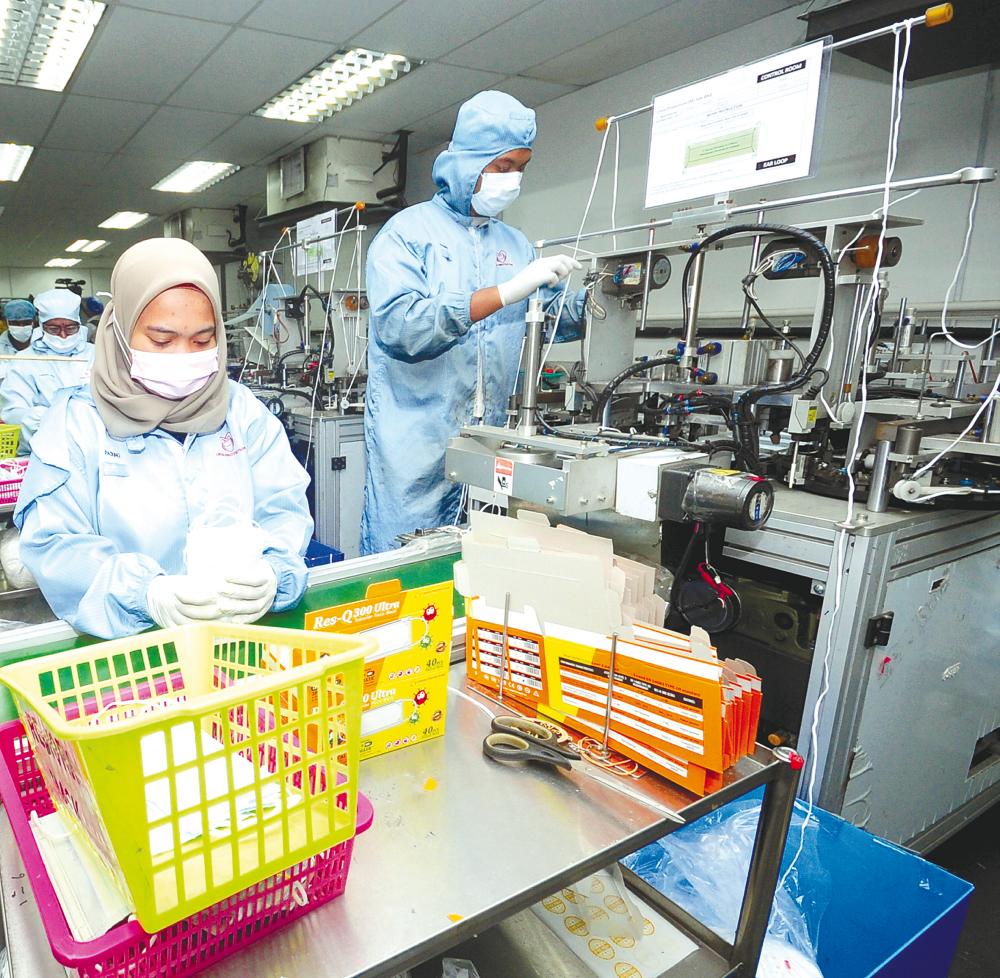PETALING JAYA: Apart from being an economic strategy, supporting small and medium-sized enterprises (SME) is a crucial move that benefits the country, said Universiti Teknologi Mara senior economics lecturer Dr Mohamad Idham Md Razak.
“With SME contributing a substantial 38.2% to the gross domestic product (GDP) in 2021, their sustained growth becomes integral to overall economic expansion.
“Moreover, the significant role SME play in the job market is evident, with 7.3 million individuals employed by them in the same year.”
Mohamad Idham said by fostering an environment conducive to SME development, the government contributes to job creation and taps into the innovative potential inherent in such enterprises.
He said SME are frequently the source of innovative ideas, and government assistance could enhance their contribution to innovation and economic progress.
“Additionally, as SME are commonly situated in underserved and rural areas, government support becomes a strategic tool to reduce inequality and poverty, thus promoting more inclusive economic development.”
Mohamad Idham also said the inherent adaptability and flexibility of SME enhance the overall stability of the economy, allowing them to navigate economic shifts, including recessions and unforeseen challenges.
He added that the diversification of SME across different industries also acts as a safeguard, mitigating the impact of downturns in specific sectors and fostering resilience in the face of economic uncertainties.
In Budget 2024, Prime Minister Datuk Seri Anwar Ibrahim unveiled a substantial financial boost for micro, small and medium-sized enterprises (MSME), with the allocation of loans and financing facilities totalling RM44 billion.
This strategic action demonstrates the government’s determination to strengthen the foundation of the economy by giving MSME essential financial support, recognising their important role in promoting resilience and economic growth.
To this, SME Association of Malaysia national president Ding Hong Sing said the significant funding options in Budget 2024 show how carefully the government has considered and comprehended industry needs.
Ding said he was happy with the budget’s proposals for the SME sector, and expressed hope that the government would remain in power to help SME adopt digitalisation.
In response to the allocation of loans and financing facilities in Budget 2024, Mohamad Idham said they would influence market dynamics in Malaysia, particularly in terms of competition, innovation and market efficiency.
“By providing a wide range of affordable products and services, it also aids in market diversification by pushing larger businesses to innovate to maintain their competitive edge.”
Mohamad Idham said the agility of SME allows them to promptly respond to shifting customer demands and market trends, fostering a dynamic business environment.
He said by actively addressing market gaps and providing specialised products and services, SME enhance market efficiency, ensuring that even underserved and rural areas have access to the goods and services they need.
“This dynamic interplay between SME and the market is instrumental in driving economic growth and fostering inclusivity across diverse sectors of the economy.”
Mohamad Idham said the substantial growth of SME exerts a significant economic influence on wealth generation and income distribution.
“Household disposable income rises as a result, which may encourage consumer spending and economic expansion.
“Through tax contributions, SME also play a pivotal role in financing public services and infrastructure enhancements.
“Notably, the prevalence of SME in underserved and rural areas positions them as agents of more inclusive economic growth, potentially alleviating poverty and reducing overall inequality on a national scale.”
On concerns about the economic inequality that may arise from the promotion of SME, Mohamad Idham said some worry that their expansion may disproportionately concentrate gains among a select few, leaving others marginalised.
“Additionally, these fears extend to heightened market competition, potentially impacting wages and working conditions,” he said.









